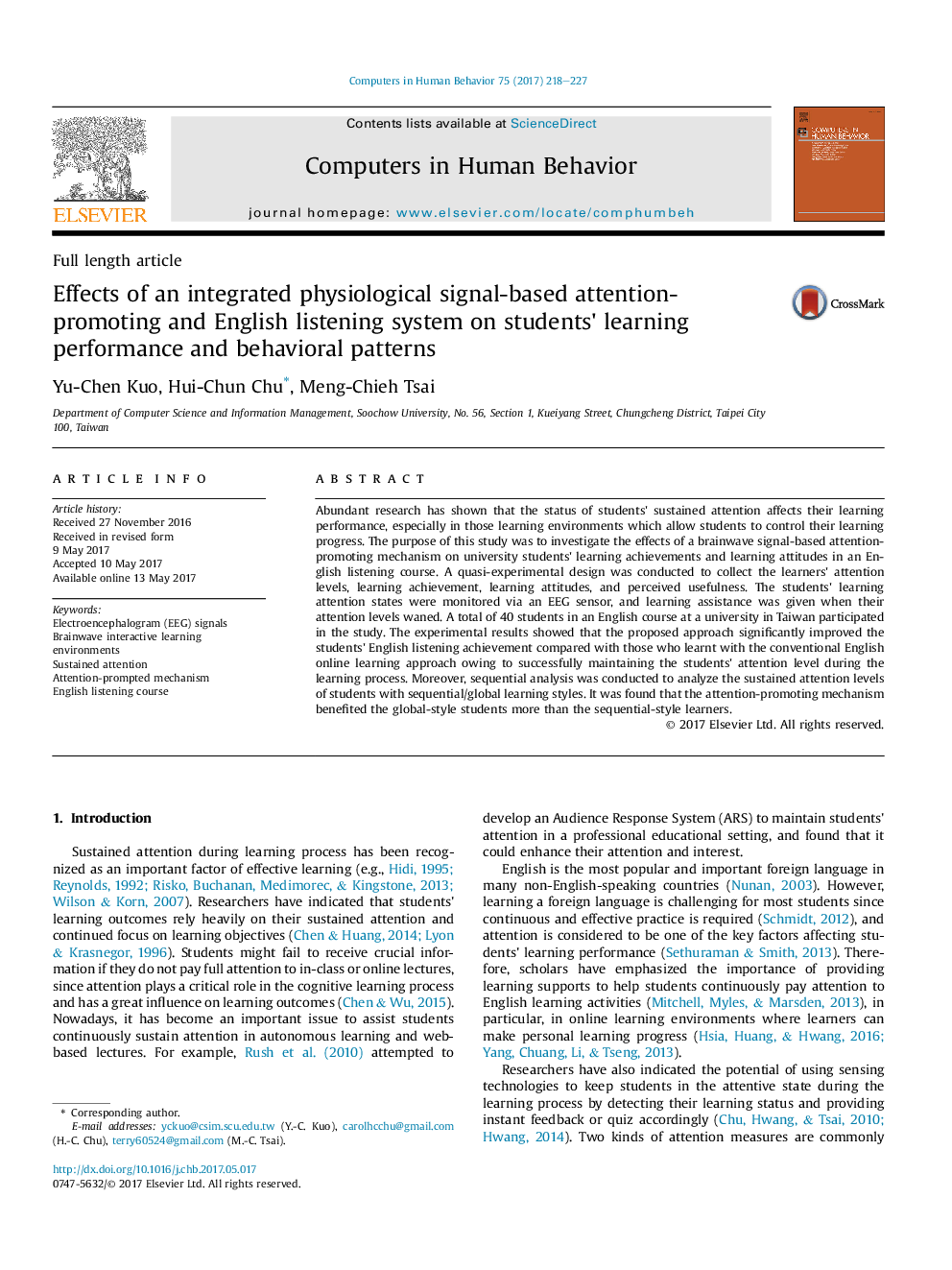| Article ID | Journal | Published Year | Pages | File Type |
|---|---|---|---|---|
| 4937493 | Computers in Human Behavior | 2017 | 10 Pages |
Abstract
Abundant research has shown that the status of students' sustained attention affects their learning performance, especially in those learning environments which allow students to control their learning progress. The purpose of this study was to investigate the effects of a brainwave signal-based attention-promoting mechanism on university students' learning achievements and learning attitudes in an English listening course. A quasi-experimental design was conducted to collect the learners' attention levels, learning achievement, learning attitudes, and perceived usefulness. The students' learning attention states were monitored via an EEG sensor, and learning assistance was given when their attention levels waned. A total of 40 students in an English course at a university in Taiwan participated in the study. The experimental results showed that the proposed approach significantly improved the students' English listening achievement compared with those who learnt with the conventional English online learning approach owing to successfully maintaining the students' attention level during the learning process. Moreover, sequential analysis was conducted to analyze the sustained attention levels of students with sequential/global learning styles. It was found that the attention-promoting mechanism benefited the global-style students more than the sequential-style learners.
Related Topics
Physical Sciences and Engineering
Computer Science
Computer Science Applications
Authors
Yu-Chen Kuo, Hui-Chun Chu, Meng-Chieh Tsai,
